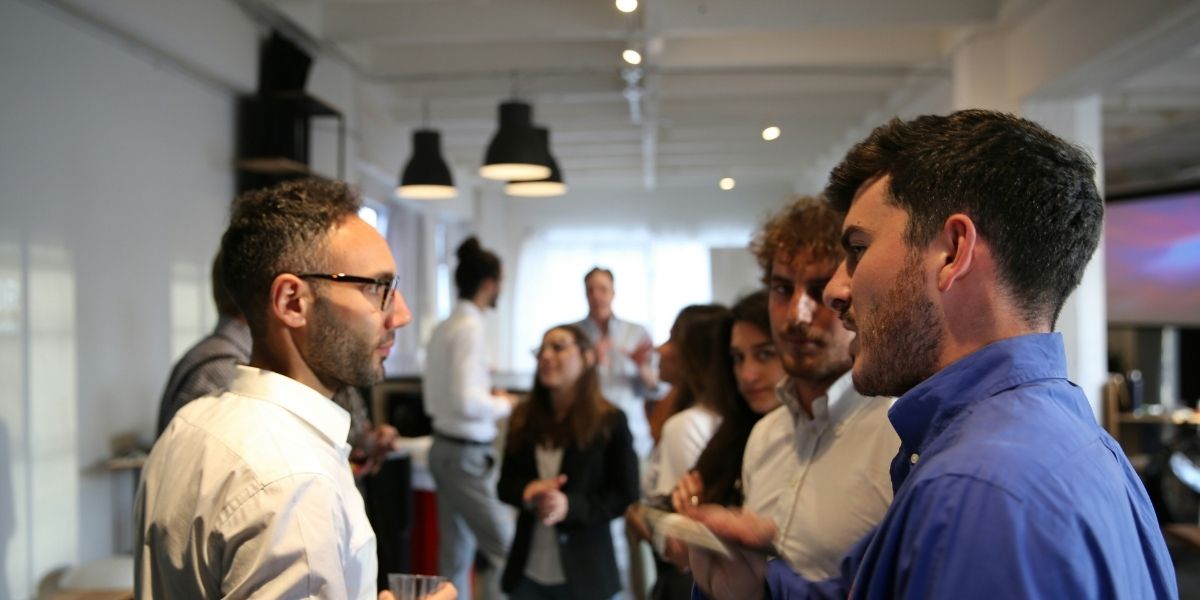Attending professional events can be one of the most valuable ways to expand a network, gain new insights, and open up future opportunities. However, these events can often feel overwhelming with so many people trying to make the most of their time. Building genuine connections at such events isn’t about collecting business cards or making small talk, it’s about forming authentic relationships that last. Here’s how anyone can approach these events with the goal of creating real, meaningful connections.
Many people attend professional events with the mindset of meeting as many people as possible. While meeting a lot of people can be beneficial, the true value comes from creating authentic relationships. Genuine connections go beyond superficial interactions and allow for stronger, long-term professional bonds.
When real connections are created, individuals are more likely to collaborate, receive advice, and discover opportunities that align with their goals. In contrast, fleeting conversations tend to have little impact beyond the initial meeting. By focusing on quality over quantity, lasting value is generated, both personally and professionally.
How Can People Approach Others Without Feeling Awkward or Forced?

One of the biggest challenges at professional events is starting conversations without feeling like they are forcing them. A good way to ease into any situation is by being oneself. Trying to impress others or acting overly formal can be off-putting. Instead, a relaxed approach, focused on showing genuine interest in others, tends to work best.
Starting with simple, open-ended questions allows the other person to share their thoughts and experiences. Questions like, “What brings someone to this event?” or “What aspect of someone’s work excites them the most?” make it easier to connect without feeling awkward. People generally enjoy talking about themselves, so this approach is a great way to break the ice.
Another key to feeling more comfortable is to focus on the other person. When questions go beyond surface-level topics, the conversation flows more naturally. This takes the pressure off and creates a more meaningful interaction.
How Can Active Listening Help Build Stronger Connections?
The key to building genuine connections lies in how well individuals listen. Too often, people focus on what they’re going to say next rather than truly engaging with what the other person is saying. Active listening can make someone stand out in a room full of people. By focusing on the conversation and responding thoughtfully, individuals show that they care about what the other person has to say.
When listening actively, it’s important to maintain eye contact, nod in agreement, and respond with follow-up questions that show engagement. This not only helps the other person feel heard but also fosters a deeper connection. Reflecting on what the other person shares is a great way to show attention and that their input is valued.
Rather than waiting for a pause to jump in, truly processing what’s being said demonstrates genuine interest in the conversation.
How Can Common Ground Be Found in Conversations?
Finding shared interests or experiences can dramatically enhance the connection made with someone. Conversations at professional events don’t need to be solely about work. In fact, discovering common ground outside of work helps humanize the interaction and deepens the relationship.
During a conversation, individuals can listen for hints of shared hobbies, personal experiences, or interests. A mention of a love for a particular sport, a recent trip, or a passion for a hobby can serve as an opening. Asking follow-up questions or sharing personal experiences can keep the conversation flowing. These personal touches create a connection that feels more substantial than simply discussing work.
Sharing stories that align with another person’s experiences helps create a sense of camaraderie. These moments of connection, whether about a favorite vacation spot or a mutual love for an activity, make interactions more memorable.
How Important Is the Follow-Up After the Event?
Building a relationship at a professional event doesn’t end once the conversation is over. In fact, following up is just as crucial as the initial meeting. Many people leave events thinking that the connections made will naturally continue, but this is rarely the case. Without a thoughtful follow-up, the conversation can fade into the background.
Following up doesn’t mean sending a generic LinkedIn request or a one-line message. Instead, referencing something specific from the conversation reminds the other person of who was met. A simple message such as, “I really enjoyed hearing about your recent project, and I’d love to continue the conversation,” shows sincerity in continuing the relationship.
A personalized follow-up leaves a lasting impression. It reinforces that the conversation was meaningful, not just a passing interaction. Moreover, it can pave the way for future discussions, collaborations, or introductions.
How Can People Avoid Overwhelming or Pushing Too Hard?
At times, the desire to make a connection can lead individuals to come off as too eager or overwhelming. It’s important to remember that not every conversation will lead to a long-term relationship, and that’s perfectly fine. Forcing a connection or making someone feel uncomfortable isn’t helpful for either person.
If a conversation is stalling or the other person isn’t as engaged, it’s okay to gracefully exit the discussion. Simply thanking them for their time, expressing that it was nice meeting them, and moving on is a respectful approach. Trying to extend a conversation that doesn’t feel natural can make both parties uncomfortable and won’t help build a lasting connection.
Sometimes, people may not have an immediate need for expertise or collaboration, and that’s okay. Authentic relationships take time to develop. By approaching connections without high expectations, individuals open themselves up to more meaningful conversations over the long term.
How Can People Stand Out Without Being Overbearing?

Standing out at a professional event doesn’t mean dominating every conversation. It’s about bringing value to interactions without coming across as overly self-promotional. One way to do this is by offering useful insights or sharing helpful resources when appropriate. If someone mentions a challenge they’re facing, offering advice or suggesting a helpful resource can make a lasting impression.
Additionally, being approachable and open to others’ ideas is a great way to stand out. Rather than focusing on pitching skills or accomplishments, focusing on contributing to the conversation and offering value to others is a positive approach. Whether suggesting a book, sharing a recent article, or providing a new perspective, these small gestures show investment in the conversation.
Sometimes, a quiet presence can have a more significant impact than being the loudest voice in the room. The goal should be to engage thoughtfully rather than forcefully, creating an environment where others feel comfortable and eager to continue the conversation.
Read also: The Rise of Skills-Based Hiring and What It Means for Workers
Building Long-Term Relationships at Professional Events
Creating genuine connections at professional events doesn’t happen overnight. It’s about making an effort to engage authentically, show interest in others, and maintain those relationships after the event. The more focus is placed on building trust and adding value to interactions, the more likely it is that the connections made will have long-term benefits.
Instead of trying to meet as many people as possible, focusing on forming deeper relationships with those who resonate with personal and professional goals leads to more meaningful connections. Taking the time to listen, show empathy, and follow up after the event allows for a network to be built on real, lasting relationships.







